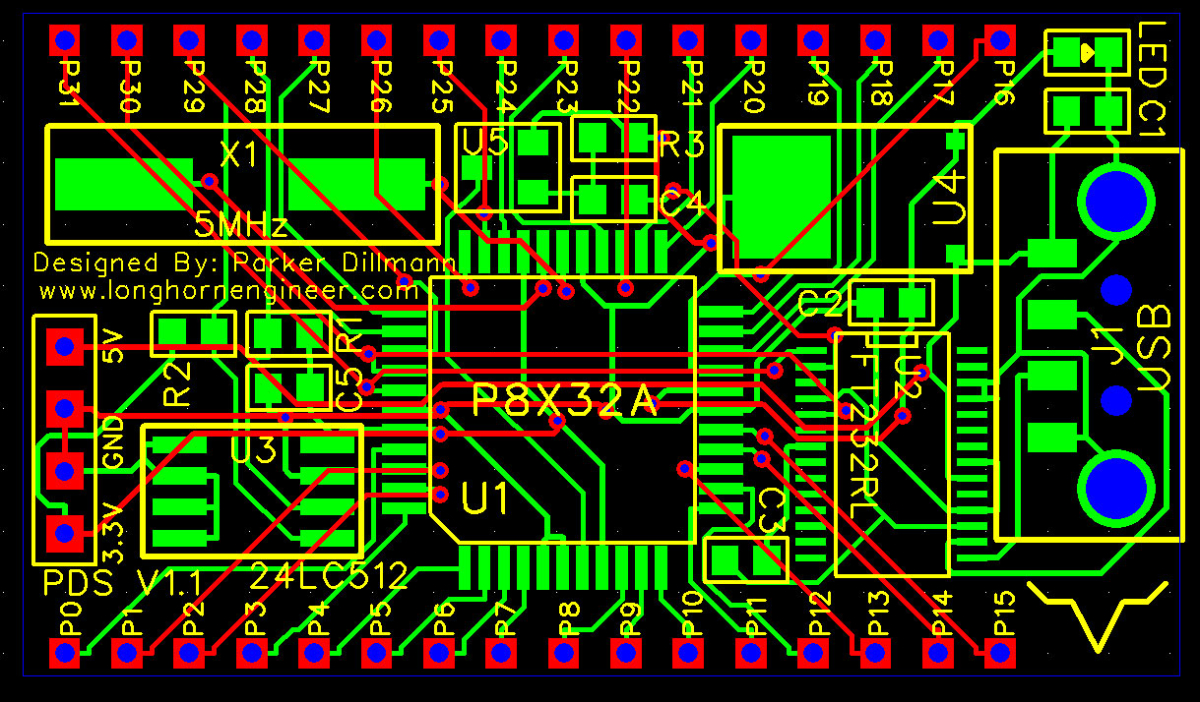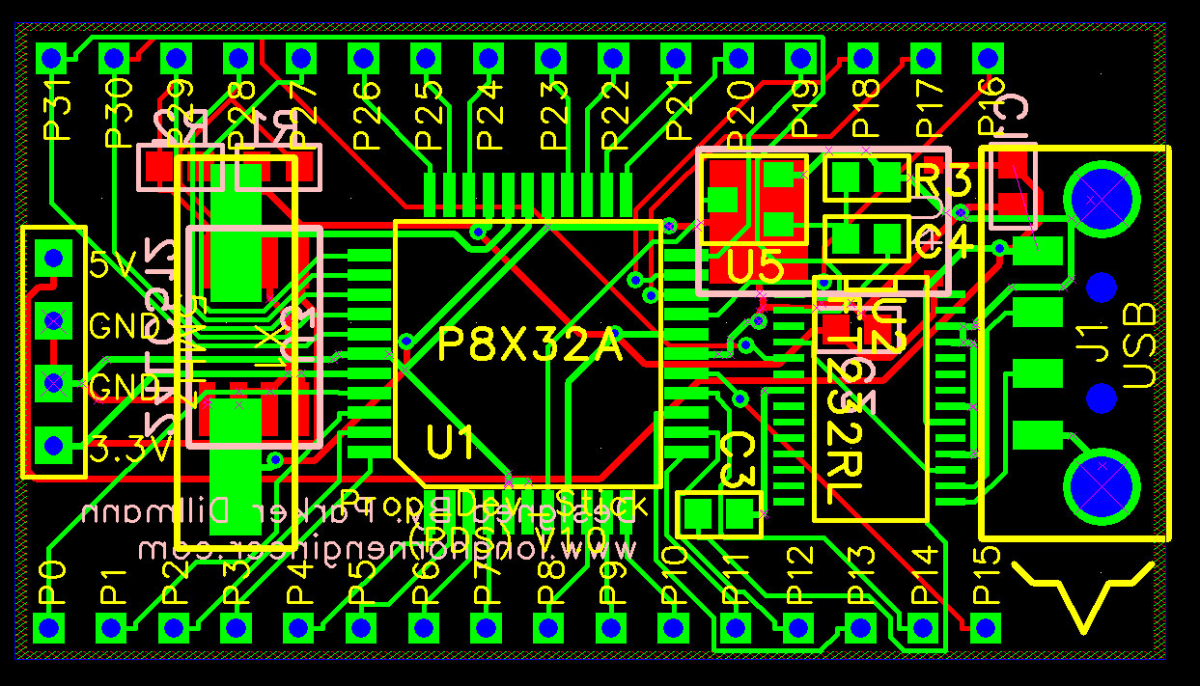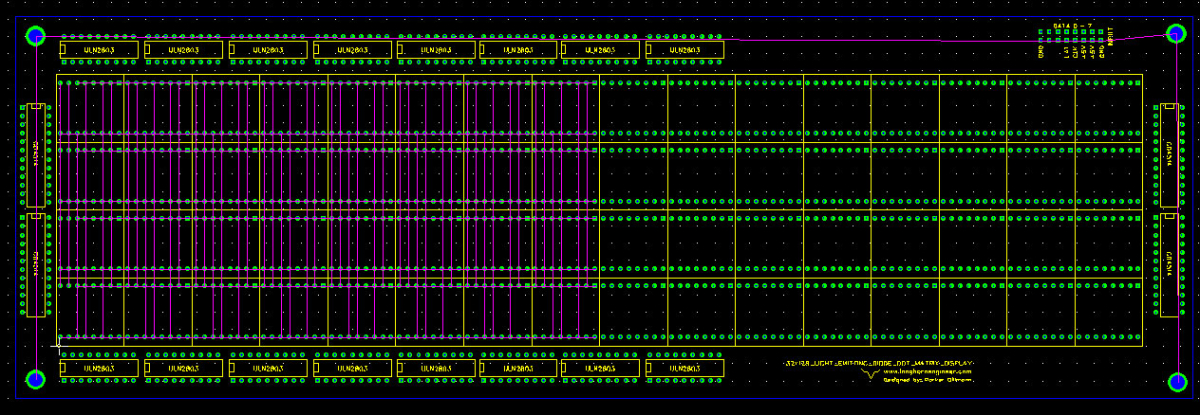The old program took to make Logic elements to fit. Now it uses a 2-port RAM element to replace the huge registers. The protocol for shifting in is a bit different now. Instead of shifting in all the data at once and then Latching the user shifts in the data 64 bits at a time then latches.
module LED_Matrix_32x128
(
clk,e_cnt,row_cnt,col,SDRAM_CS,SRAM_CS,LAT,INPUT,SCLK
);
input wire clk;
input wire LAT;
input wire [7:0] INPUT;
input wire SCLK;
output reg [63:0] col;
output reg [0:0] SDRAM_CS;
output reg [0:0] SRAM_CS;
output reg [5:0] row_cnt;
output reg [4:0] e_cnt;
reg [24:0] clk_slow;
reg [63:0] col_buffer;
reg [5:0] read_addr;
reg [5:0] write_addr;
reg [63:0] disp_mem_data;
reg disp_mem_wren;
wire [63:0] disp_mem_q;
initial
begin
SDRAM_CS <= 1'b0;
SRAM_CS <= 1'b0;
clk_slow <= 16'b0000000000000000;
row_cnt <= 5'b00000;
e_cnt <= 4'b1000;
write_addr <= 5'b00000;
disp_mem_wren <= 0;
end
always @(posedge clk)
begin
clk_slow <= clk_slow + 1'b1;
end
always @(posedge clk_slow[10])
begin
if(row_cnt > 5'b01111)
begin
row_cnt <= 5'b00000;
e_cnt <= {e_cnt[2:0],e_cnt[3]};
end
col <= disp_mem_q;
row_cnt <= row_cnt + 1'b1;
read_addr <= read_addr + 1'b1;
end
always @(posedge SCLK)
begin
if(LAT)
begin
col_buffer <= {col_buffer[62:0],INPUT[0]};
end
else
begin
disp_mem_data <= col_buffer;
disp_mem_wren <= 1;
disp_mem_wren <= 0;
write_addr <= write_addr + 1'b1;
end
end
display_memory disp_mem_inst (
.rdaddress (read_addr),
.wraddress (write_addr),
.clock (clk),
.data (disp_mem_data),
.wren (disp_mem_wren),
.q (disp_mem_q)
);
endmodule





